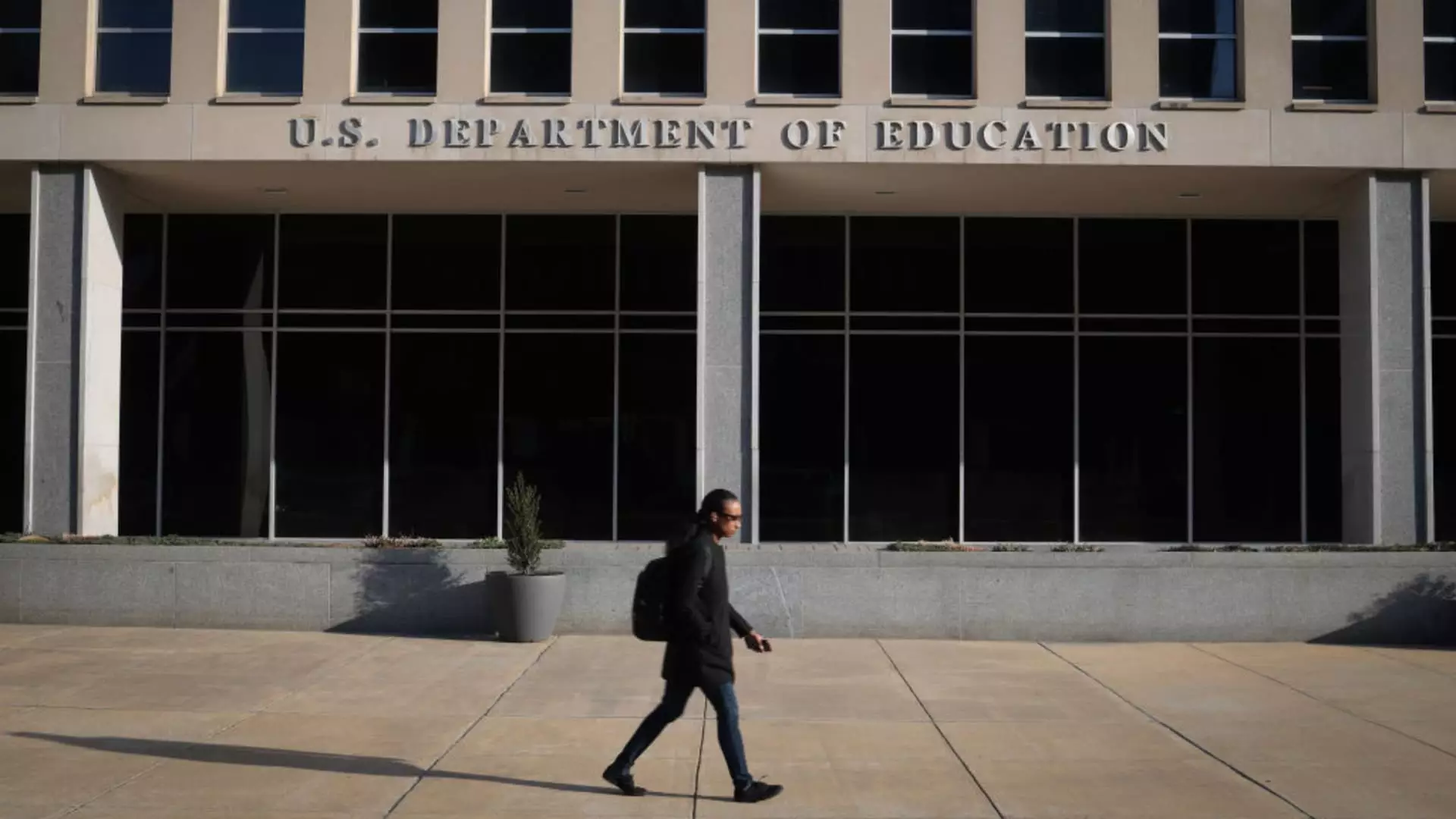Income-driven repayment (IDR) plans were designed to alleviate the financial burden on borrowers who invested in their education, offering a semblance of hope in an increasingly expensive system. As the American Federation of Teachers (AFT) thrusts the U.S. Department of Education into the courtroom over what they consider an attack on student borrowers, it’s crucial to understand the gravity of losing access to these repayment options. By blocking applications for IDR plans—a service essential for millions—the government is not just hamstringing a program; it’s endangering the economic stability of those who are already grappling with crushing debt and rising living costs.
A Struggle Against Politics
AFT President Randi Weingarten’s remarks about the Trump administration’s approach highlight a concerning political landscape wherein education and financial stability are being manipulated for partisan gain. With over 12 million borrowers relying on these repayment plans, the freezing of their access appears to be a cynical ploy by a government out of touch with the realities facing working-class Americans. In a world still reeling from the economic aftershocks of the pandemic, where inflation rates have made basic living conditions untenable, political maneuvering should not dictate the lives of millions unnecessarily struggling under the weight of student debt.
Implications of the Education Department’s Actions
The Education Department, acting under the sanctions of a recent court order, claims to be refining the processes governing these plans. However, their interpretation of the appeals court ruling raises eyebrows. In their enthusiasm to comply, they have inadvertently tread into territory that effectively relinquishes the safety net that IDR plans provide. While they may insist the temporary freeze is just that—temporary—waiting is a luxury that many borrowers cannot afford. They face imminent financial distress exacerbated by a government that appears to prioritize legal compliance over humanity and empathy for its citizens.
A Fragile Future for Student Borrowers
As Mike Pierce of the Student Borrower Protection Center notes, the consequences of this maneuver are dire for those caught in the crossfire. Borrowers are navigating a reality where mounting monthly payments are threatening their livelihoods, and as economic conditions worsen, the ability to maintain their educational investments diminishes. It is an unpredictable, often unforgiving system, and the AFT’s lawsuit symbolizes a pressing cry for reform amid systemic failures.
The Role of Advocacy in Education Policy
Weingarten’s bold move to file a lawsuit emphasizes the necessity for organizations to stand up against what can often feel like a leviathan bureaucracy insensitive to the plight of the working class. Labor unions have historically acted as advocates for equitable treatment in various sectors, and this case is no less critical. The IDR plans are not mere financial tools; they represent a lifeline for those seeking a semblance of control over their futures. Advocacy through litigation is a testament to the idea that ordinary citizens deserve an education system that works for them, not against them.
A System in Need of Reform
As the struggle continues, the broader conversation must turn toward reforms that ensure educational access does not come with a lifetime of crippling debt. The current educational finance ecosystem is a labyrinthine affair that flies in the face of what a just society should offer its citizens. By focusing on political maneuverings rather than genuine economic support, we risk perpetuating cycles of poverty among educated populations. The AFT’s actions shine a light on this struggle, reminding us that advocacy and progress go hand in hand in the quest for a better future.

